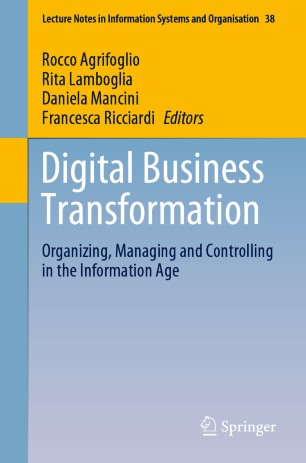

Most ebook files are in PDF format, so you can easily read them using various software such as Foxit Reader or directly on the Google Chrome browser.
Some ebook files are released by publishers in other formats such as .awz, .mobi, .epub, .fb2, etc. You may need to install specific software to read these formats on mobile/PC, such as Calibre.
Please read the tutorial at this link. https://ebooknice.com/page/post?id=faq
We offer FREE conversion to the popular formats you request; however, this may take some time. Therefore, right after payment, please email us, and we will try to provide the service as quickly as possible.
For some exceptional file formats or broken links (if any), please refrain from opening any disputes. Instead, email us first, and we will try to assist within a maximum of 6 hours.
EbookNice Team

Status:
Available5.0
36 reviewsThe recent surge of interest in “digital transformation” is changing the business landscape and posing several challenges, both organizational and sectoral. This transformation involves the application of digital technology in all aspects of business, and enables organizations to create new products and services, and to find more efficient ways of doing business.
Moreover, the digital transformation is happening within and across organizations of all types and in every industry, producing a disruptive innovation that can break down the barriers between people and organizations, and help create more adaptive processes. In the information age, it is imperative for organizations to develop IT-related capabilities that allow them to leverage the potential of digital technologies. Due to the pervasive effects of this transformation on processes, firms and industries, both scholars and practitioners are interested in better understanding the key mechanisms behind the emergence and evolution of the digital business transformation.
This book presents a collection of research papers focusing on the relationships between technologies (e.g., digital platforms, AI, blockchain, etc.), processes (e.g., decision-making, co-creation, financial, compliance, etc.), and organizations (e.g., smart organizations, digital ecosystems, Industry 4.0, collaborative networked organizations, etc.), which have been categorized into three major areas: organizing, managing and controlling. It also provides critical insights into how the digital transformation is enhancing organizational processes and firms’ performance through an exploration and exploitation of internal resources, and through the establishment of external connections and linkages.
The plurality of views offered makes this book particularly relevant for users, companies, scientists, and governments. The content of the book is based on a selection of the best papers (original double-blind peer-reviewed contributions) presented at the annual conference of the Italian chapter of the AIS, which was held in Naples, Italy in September 2019.